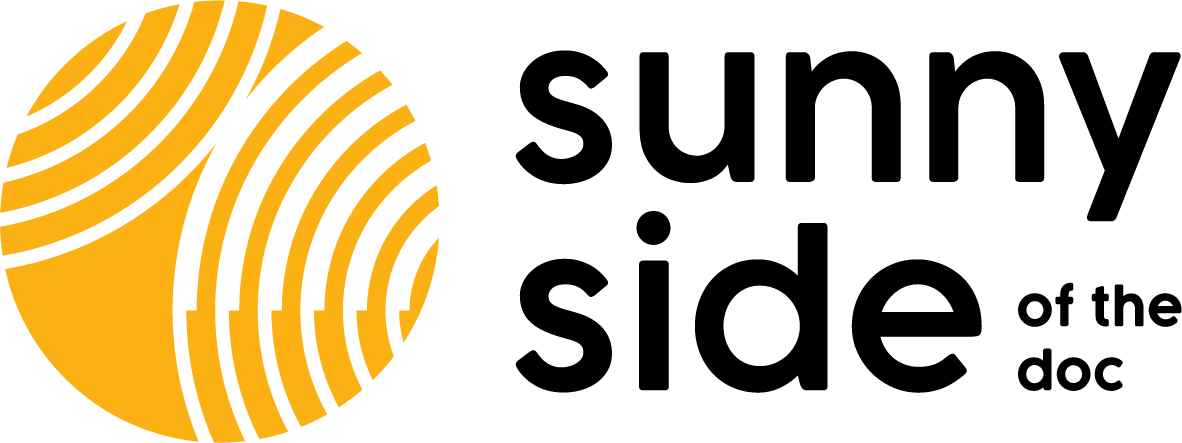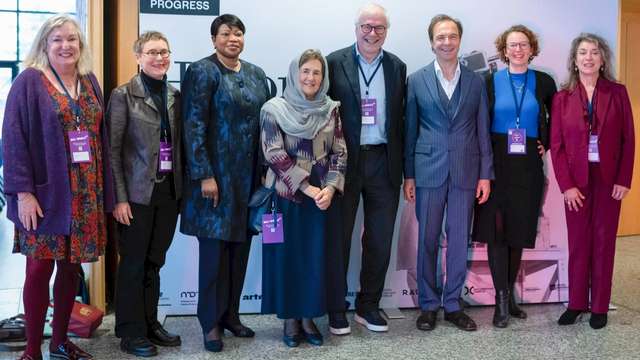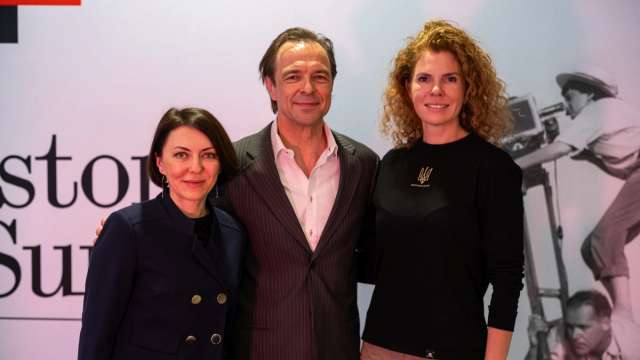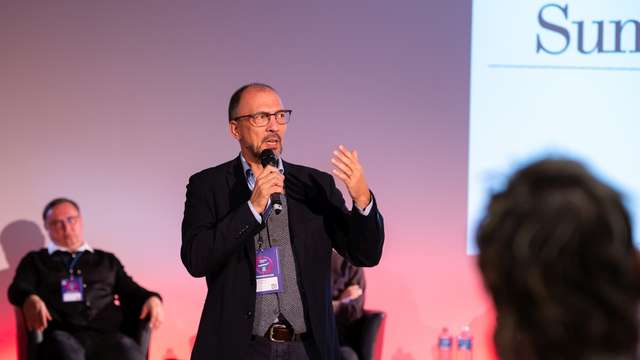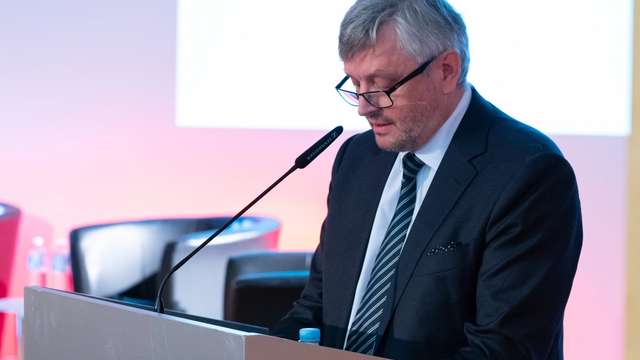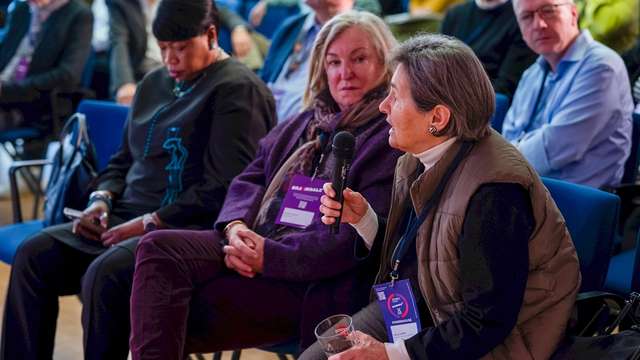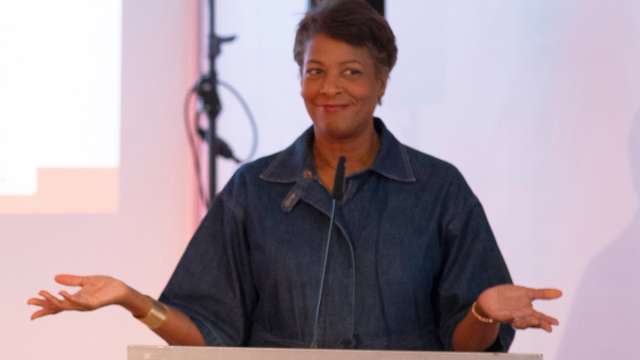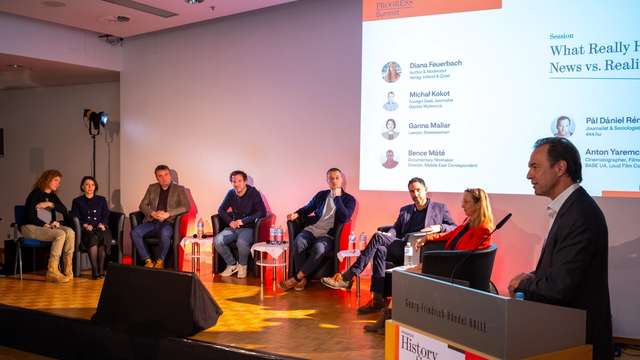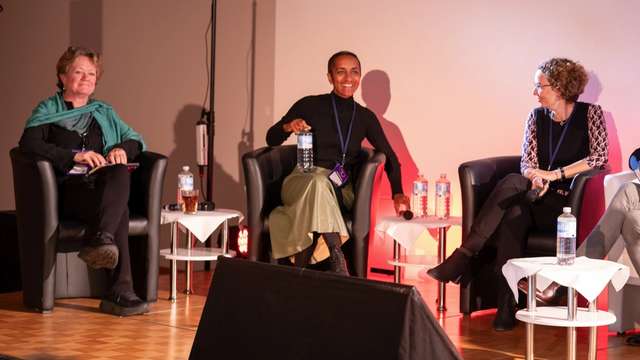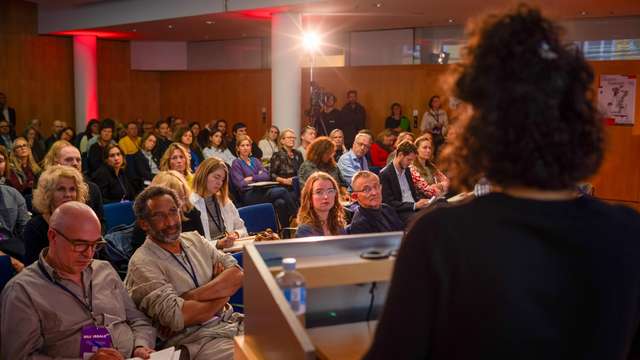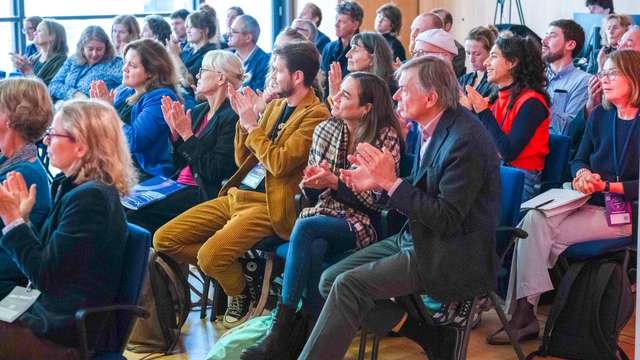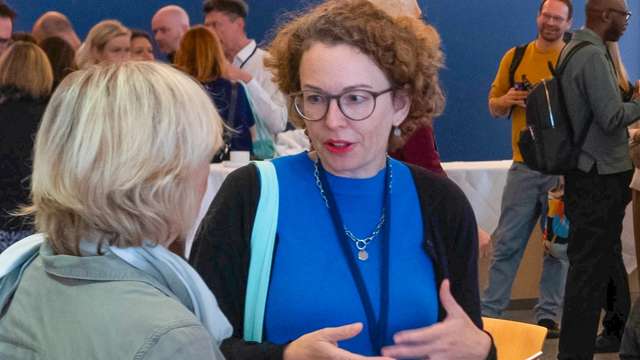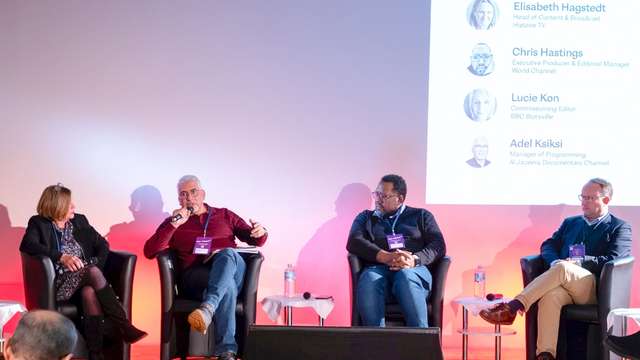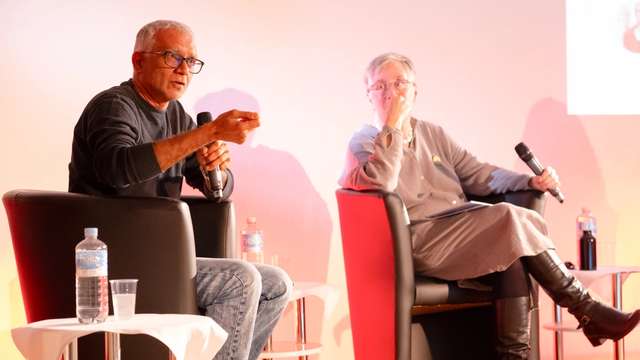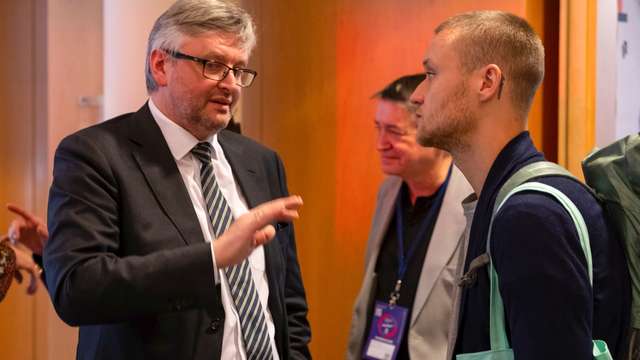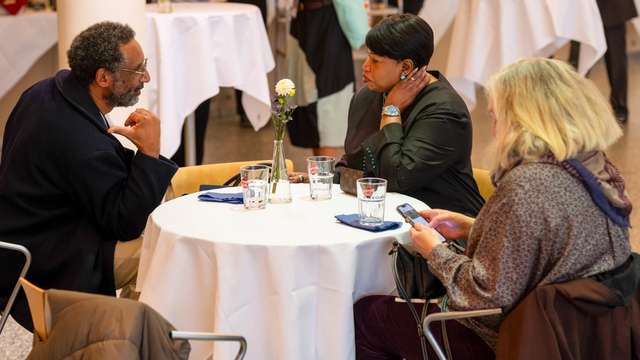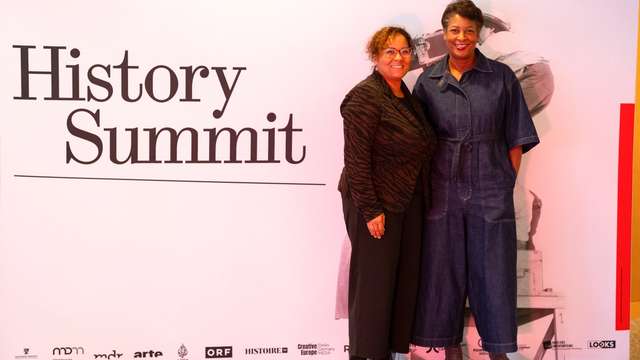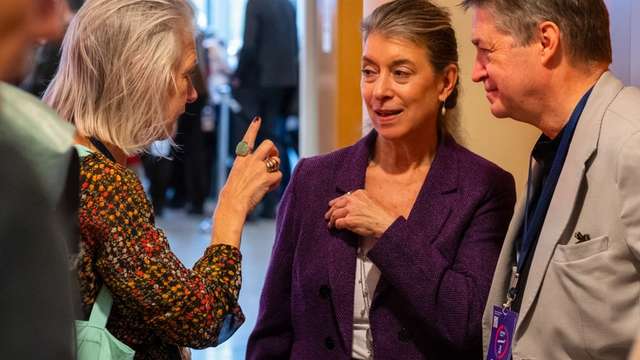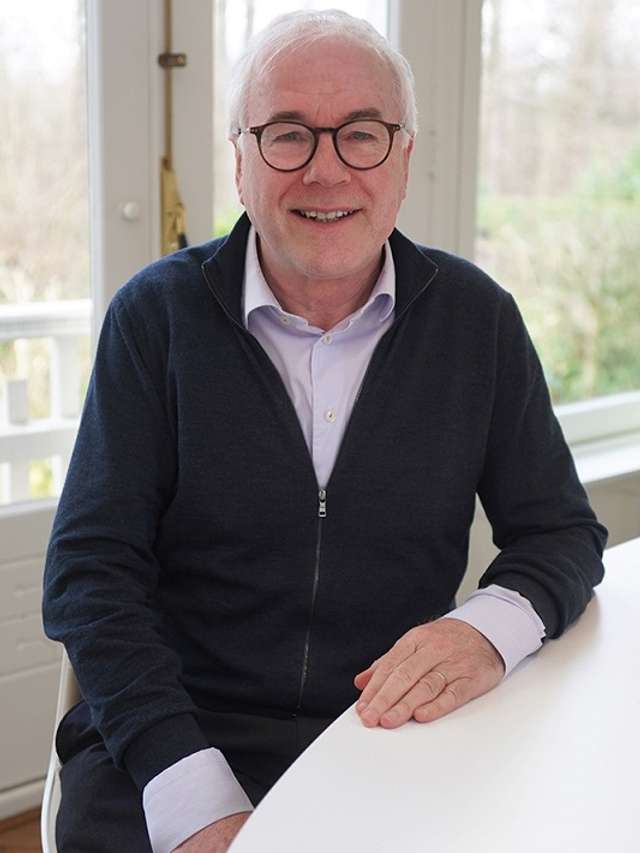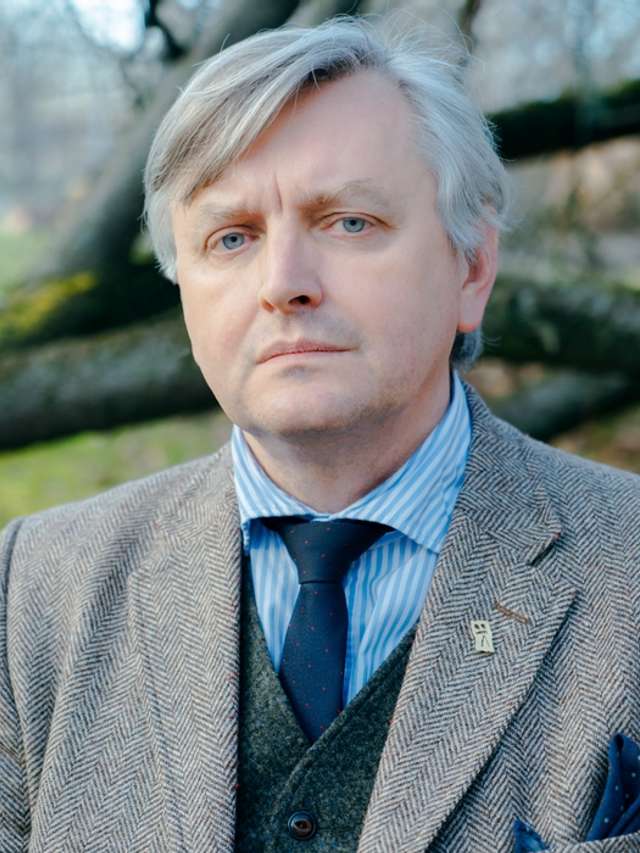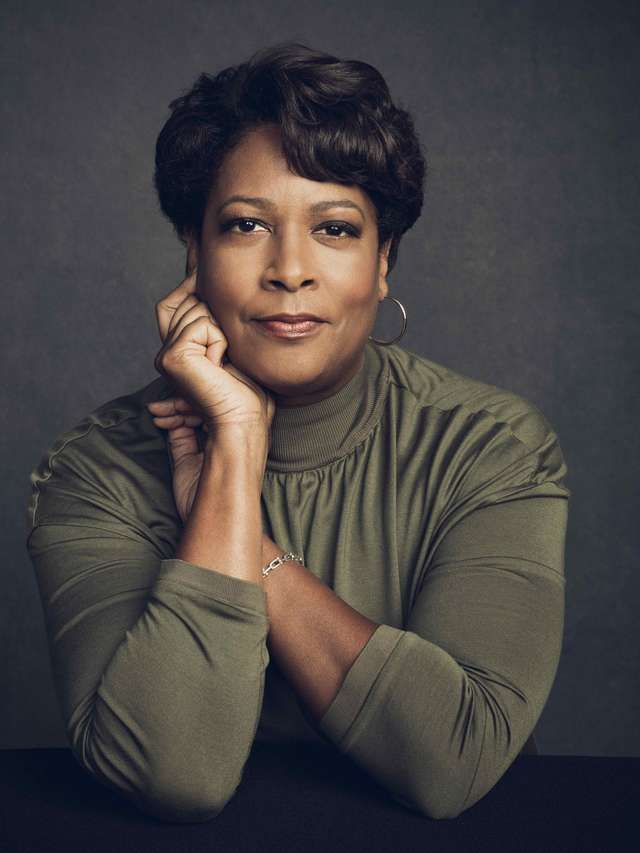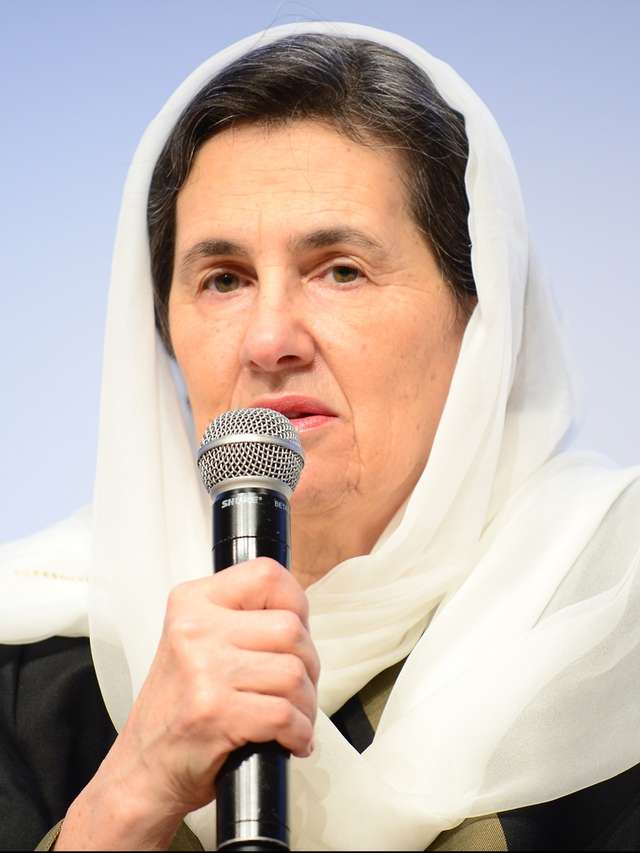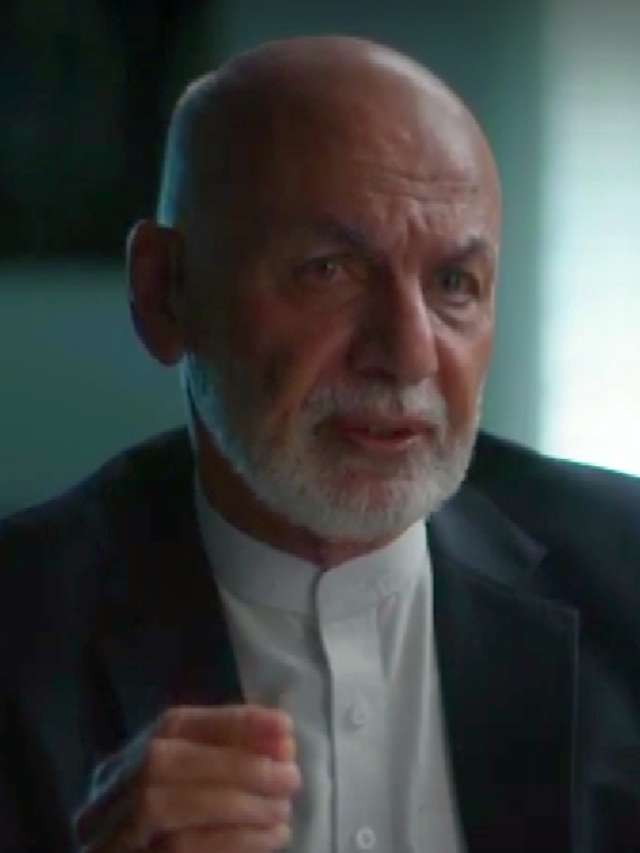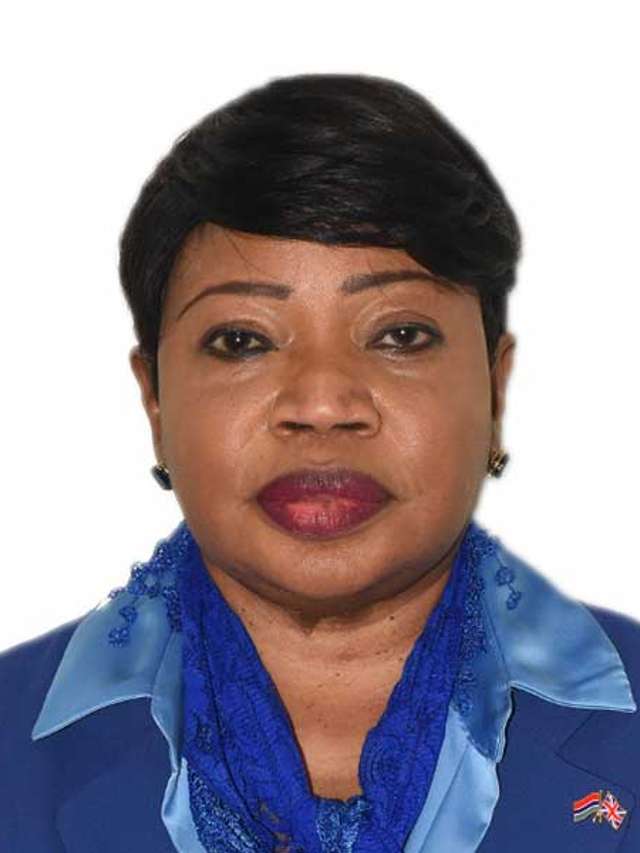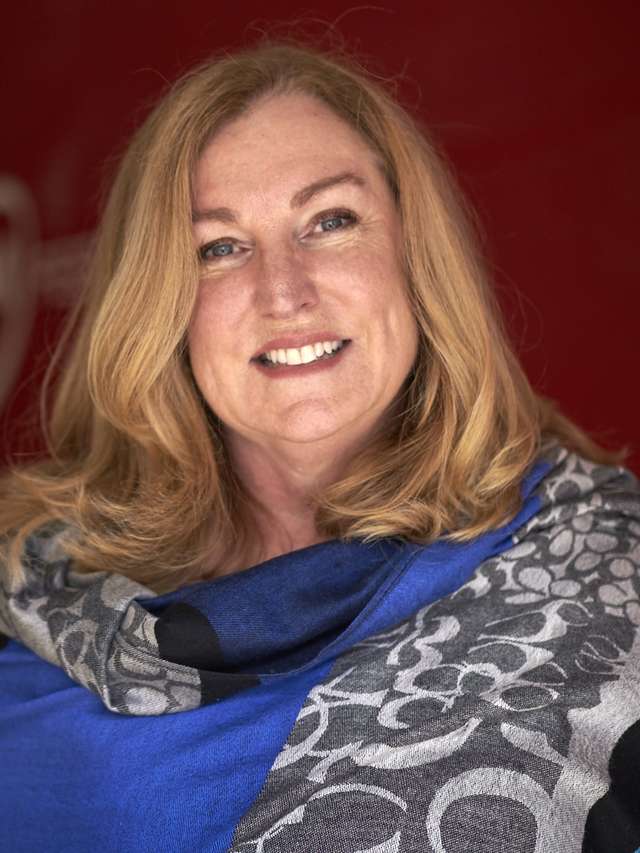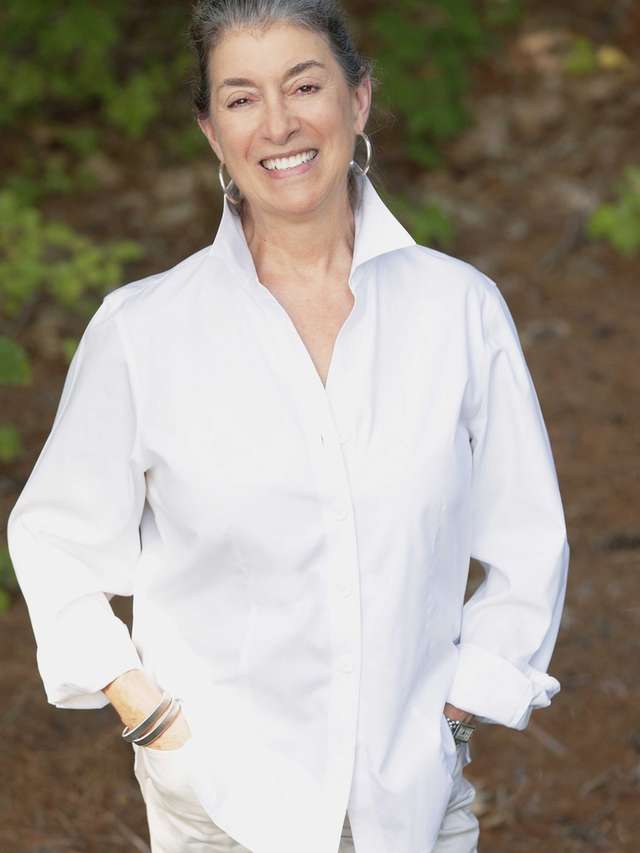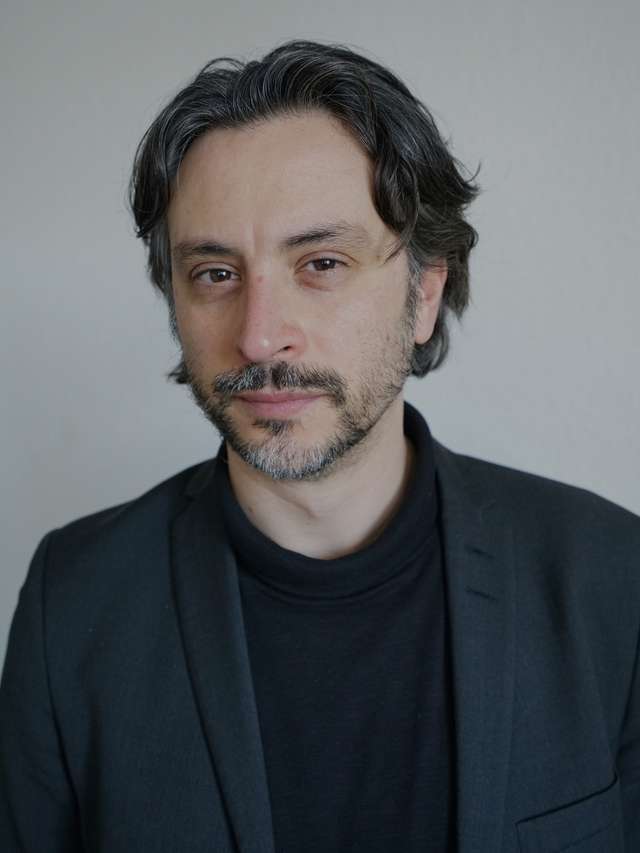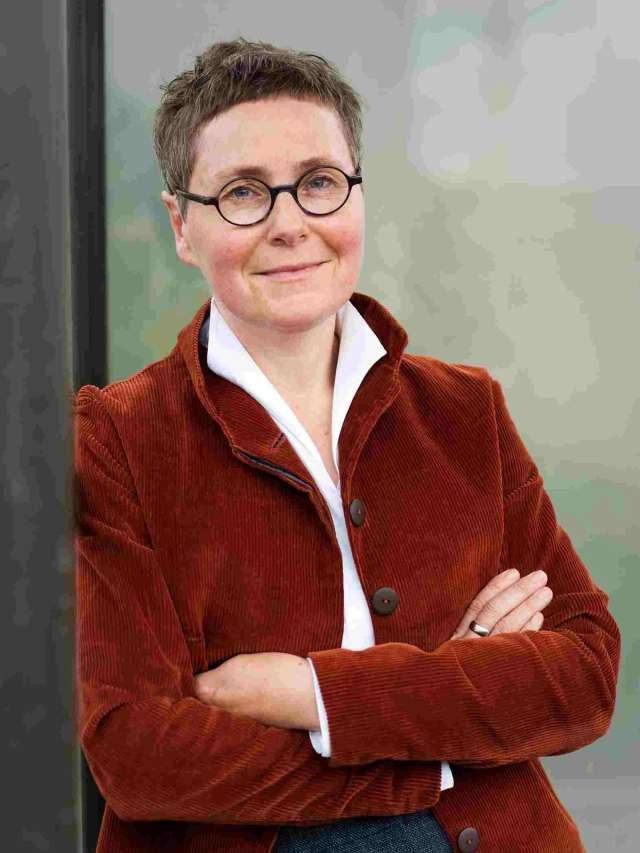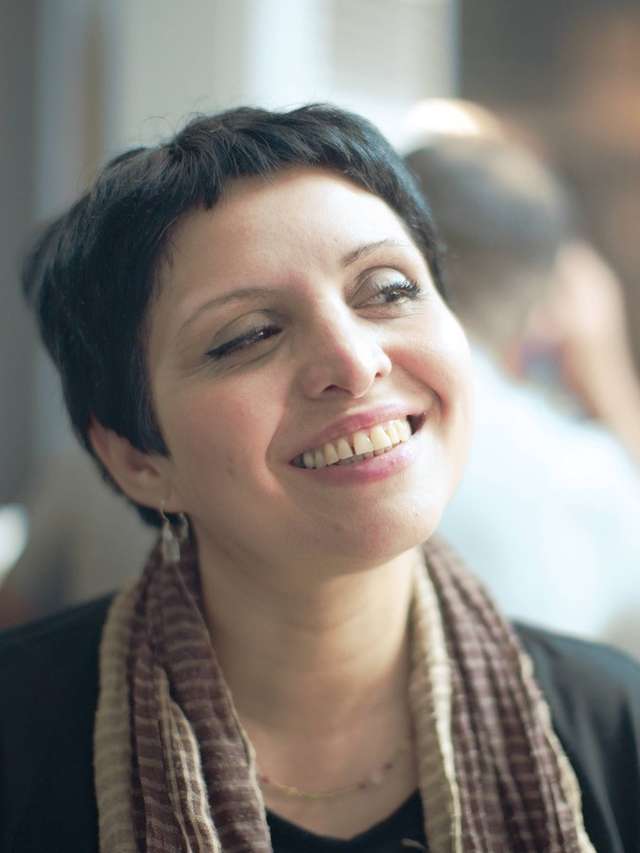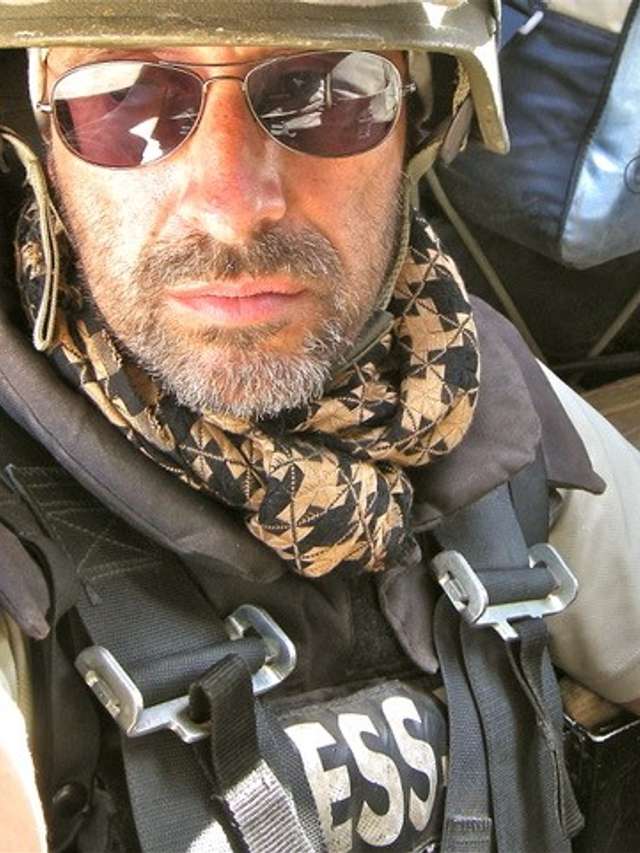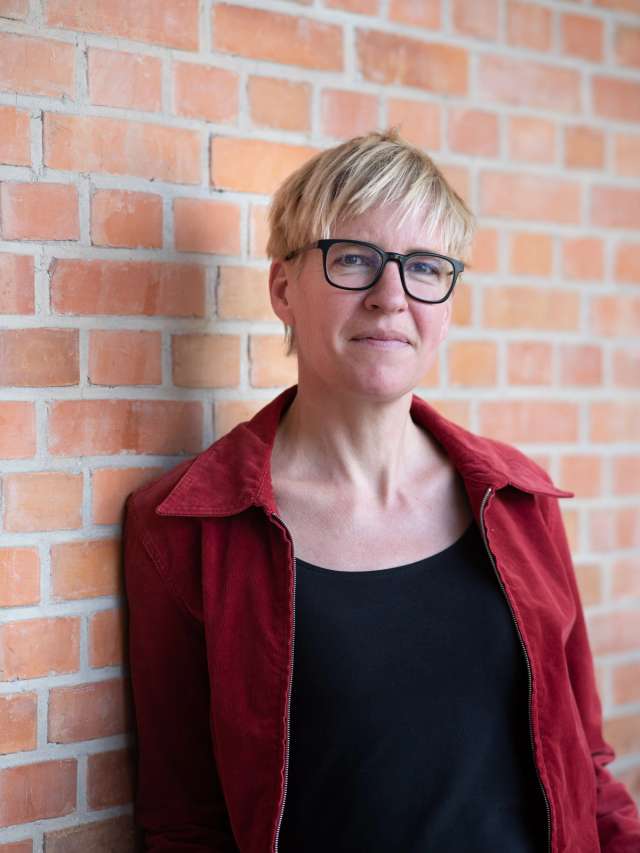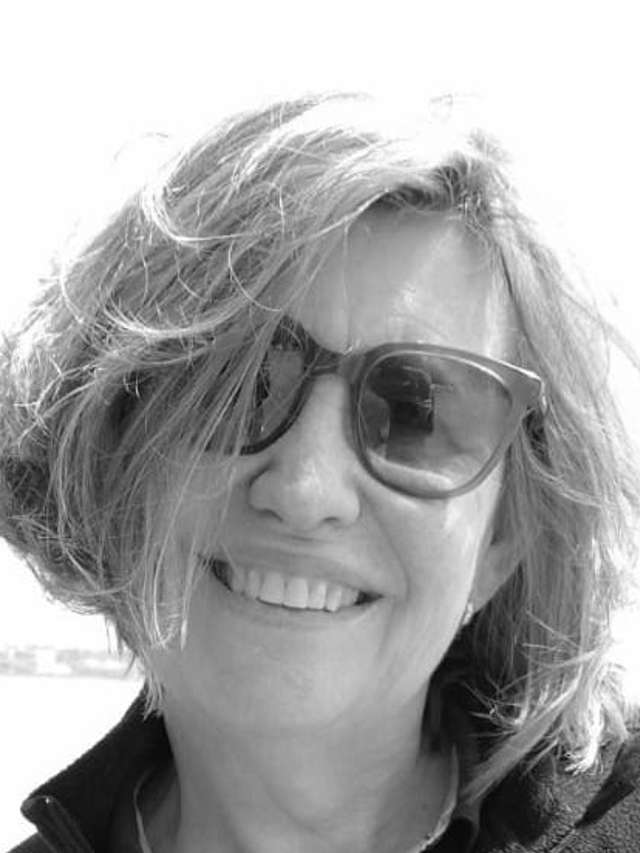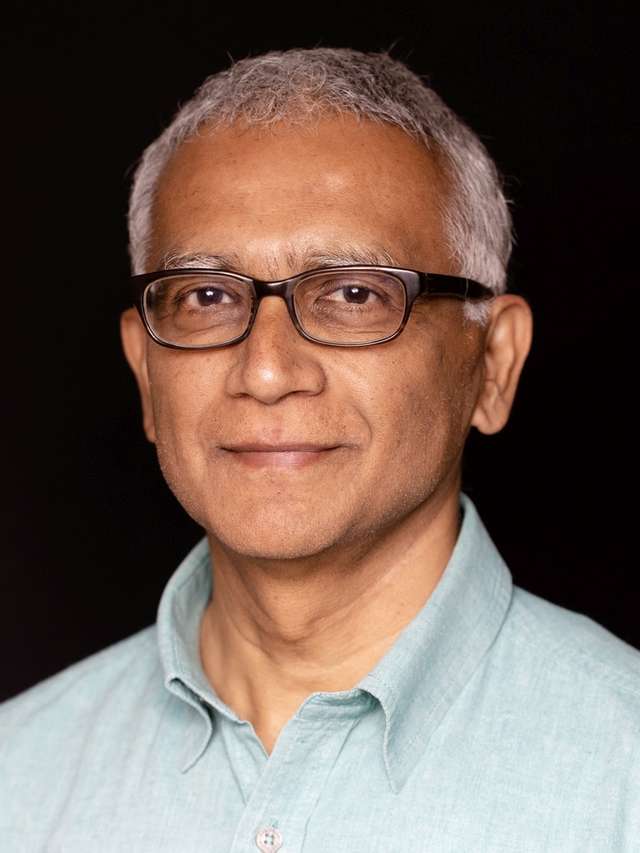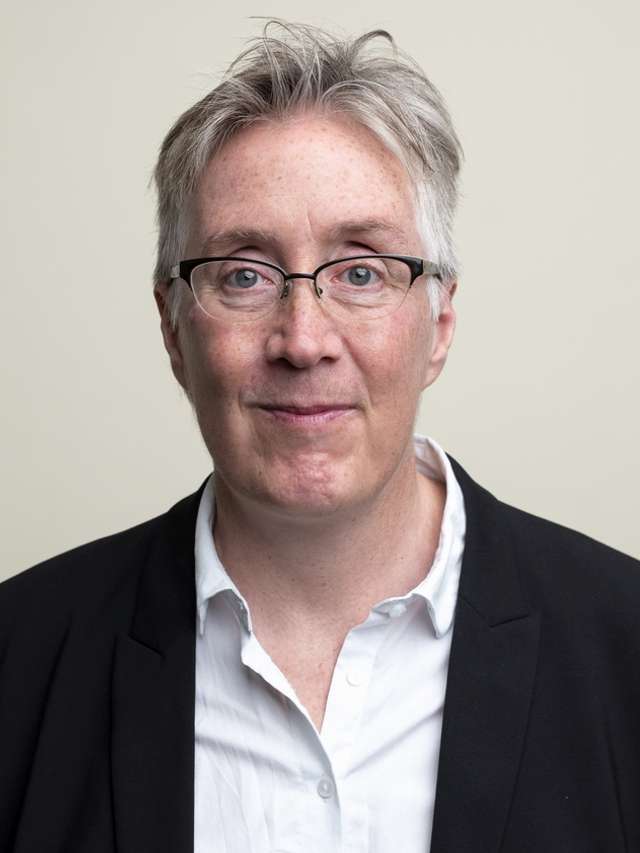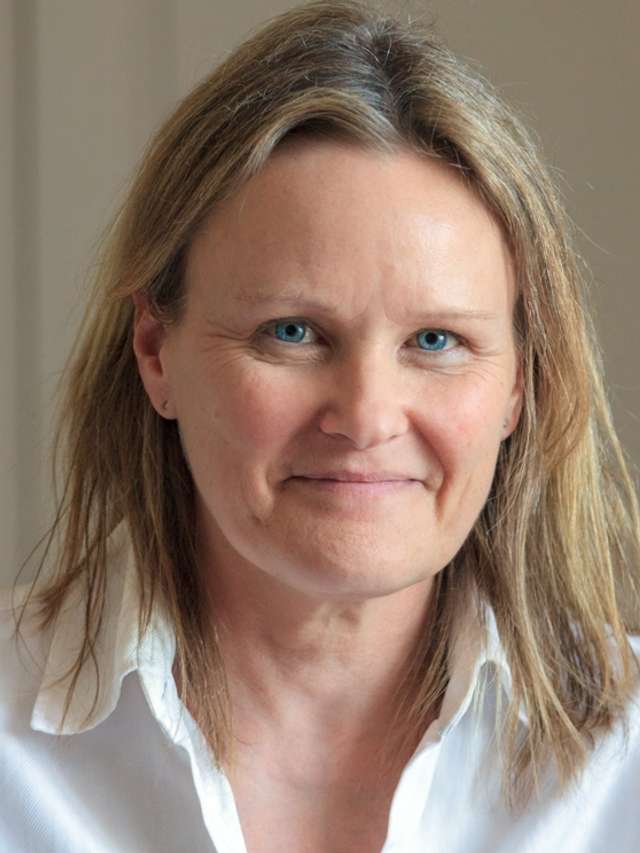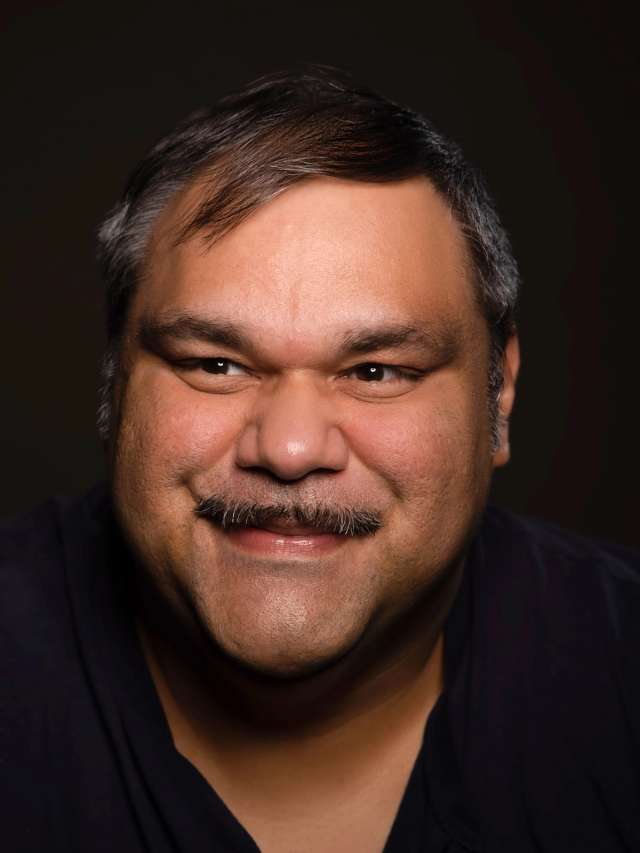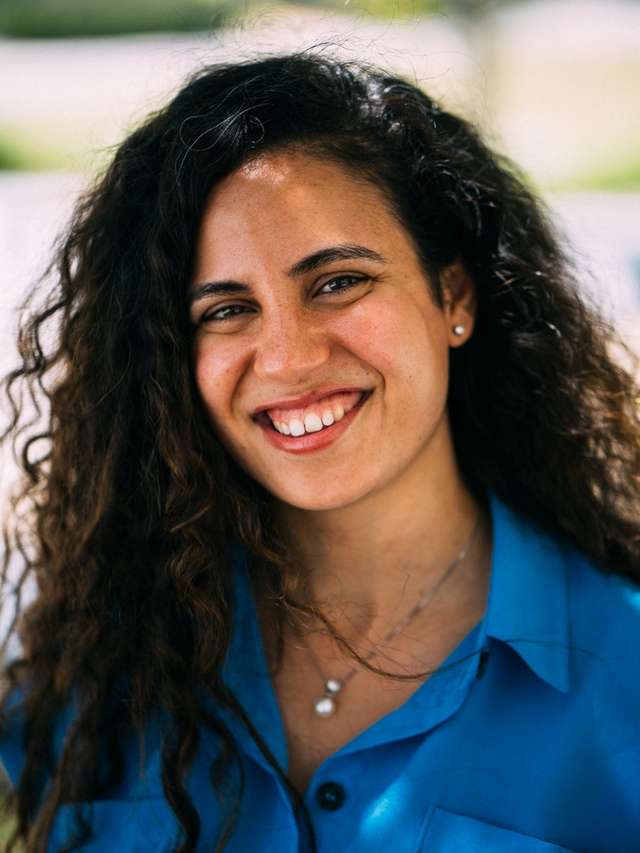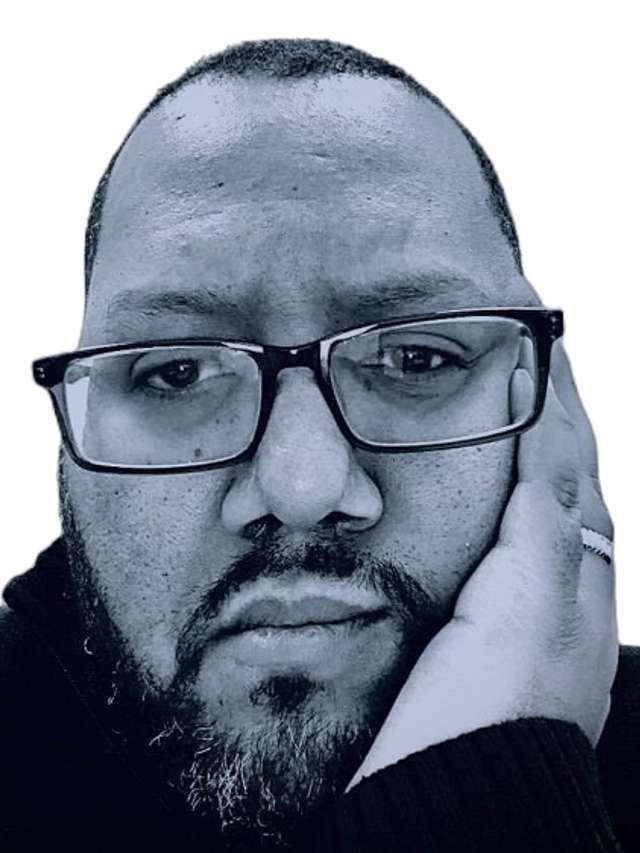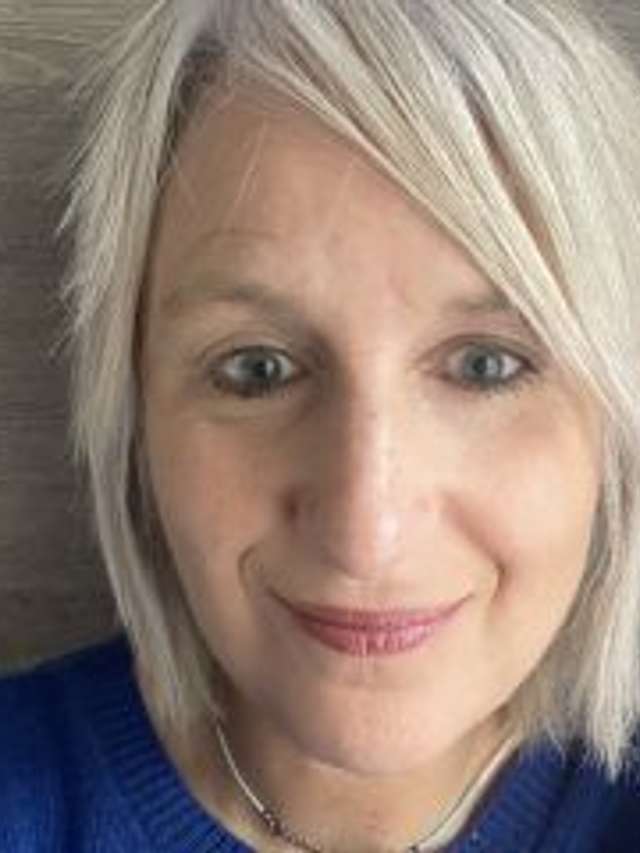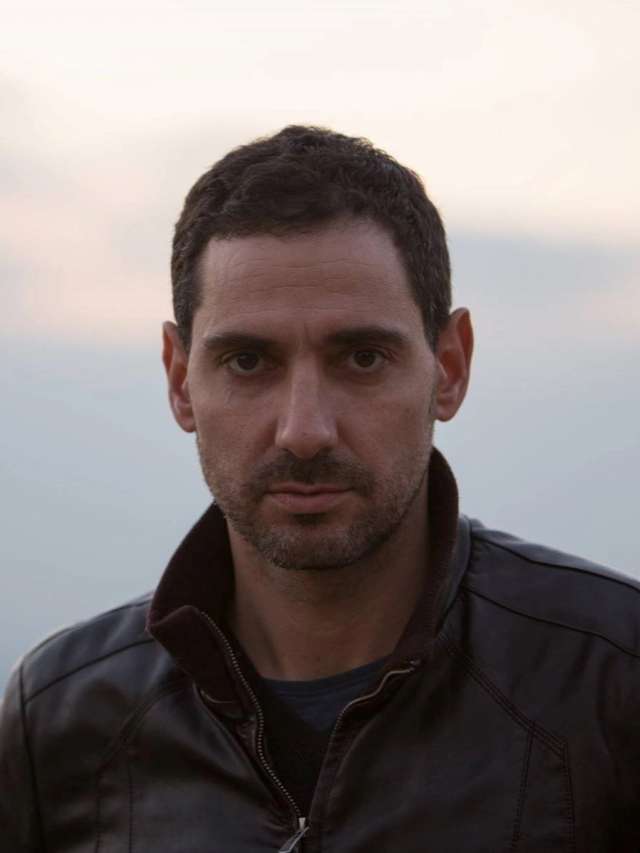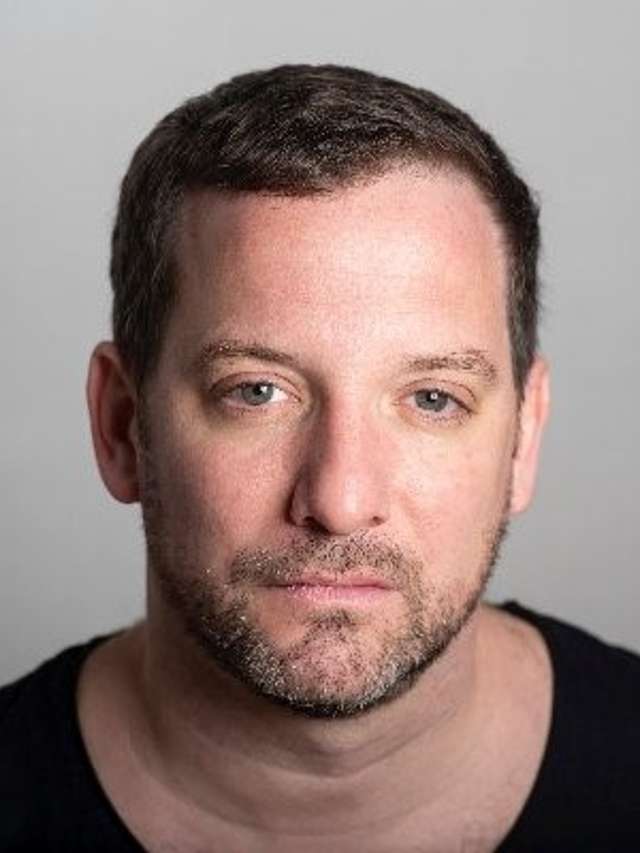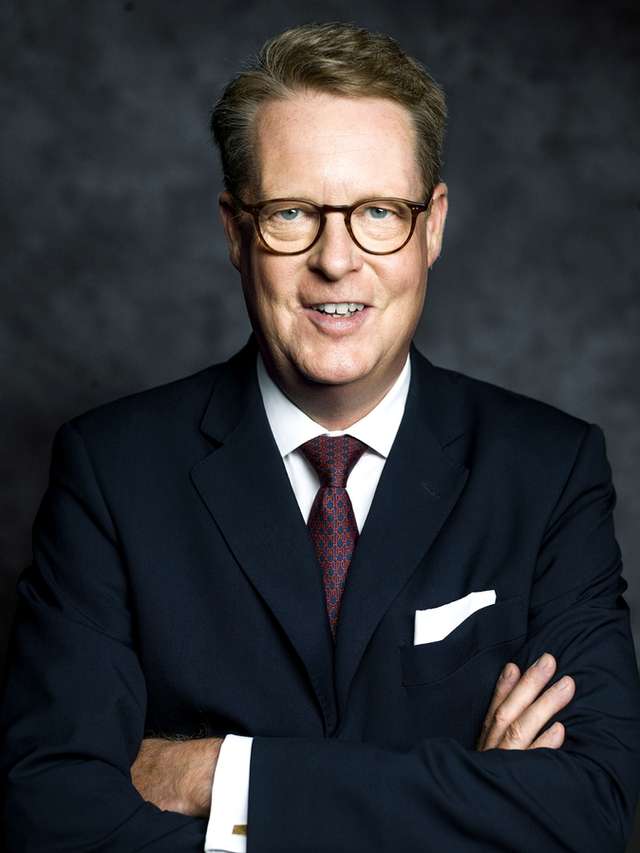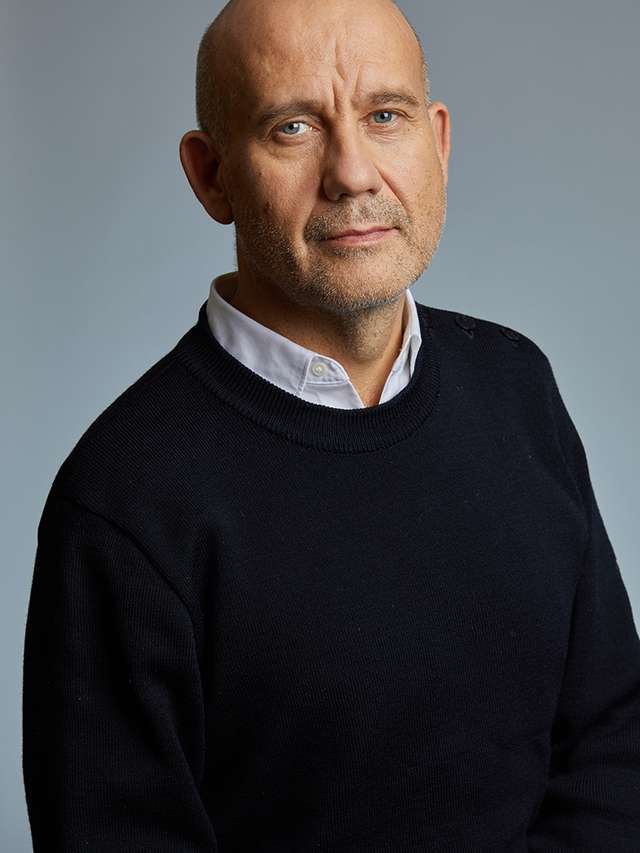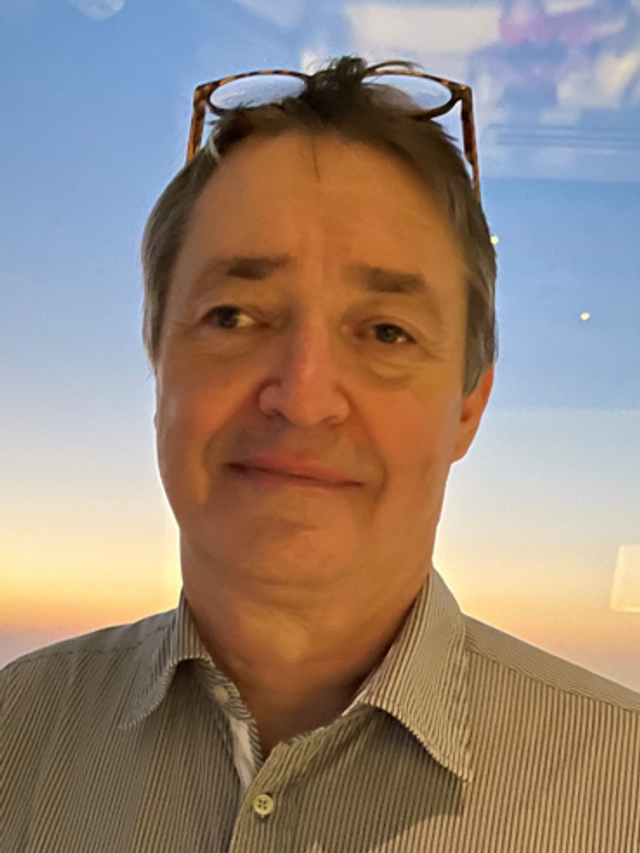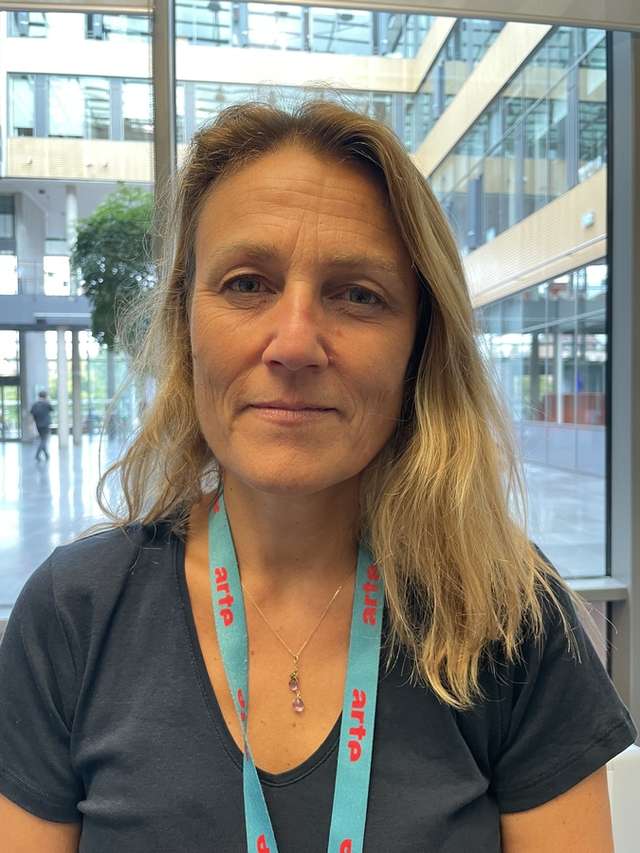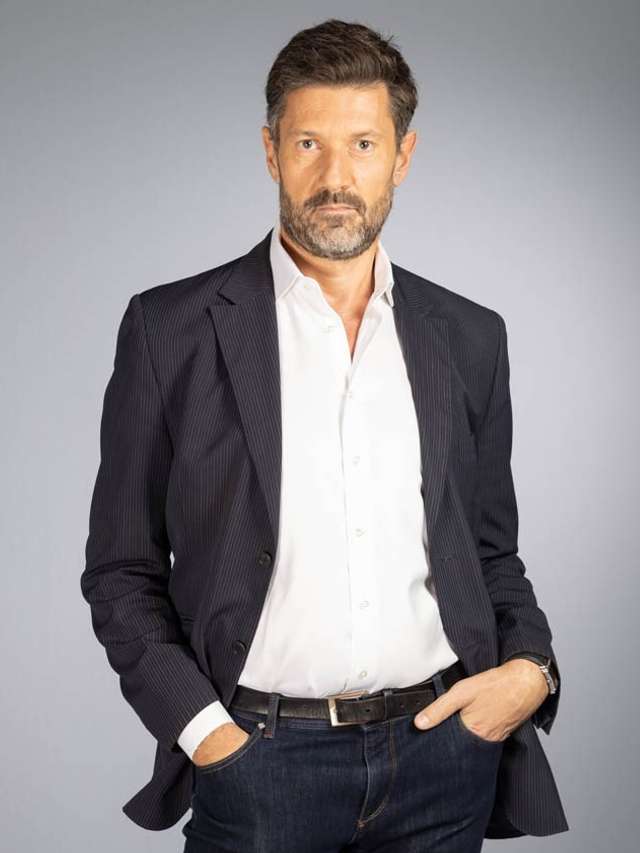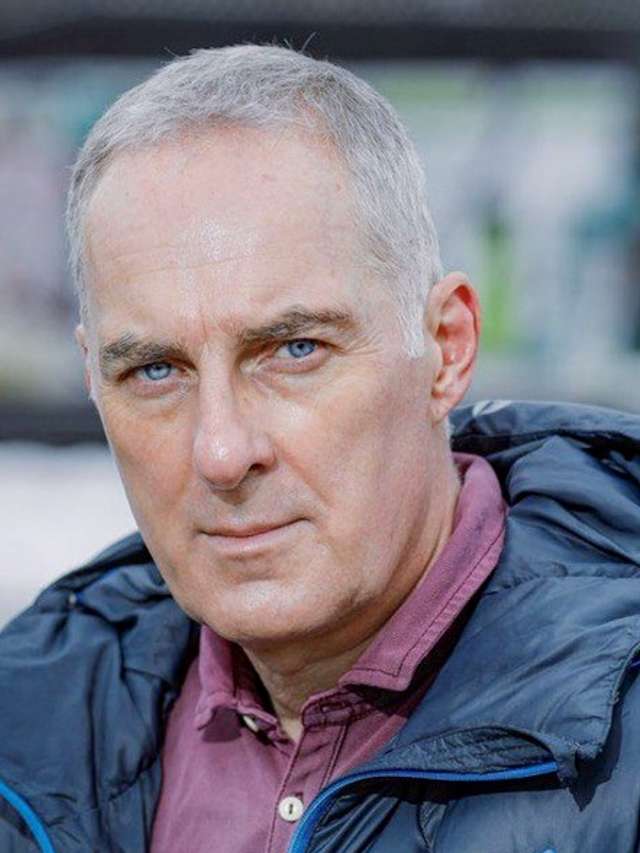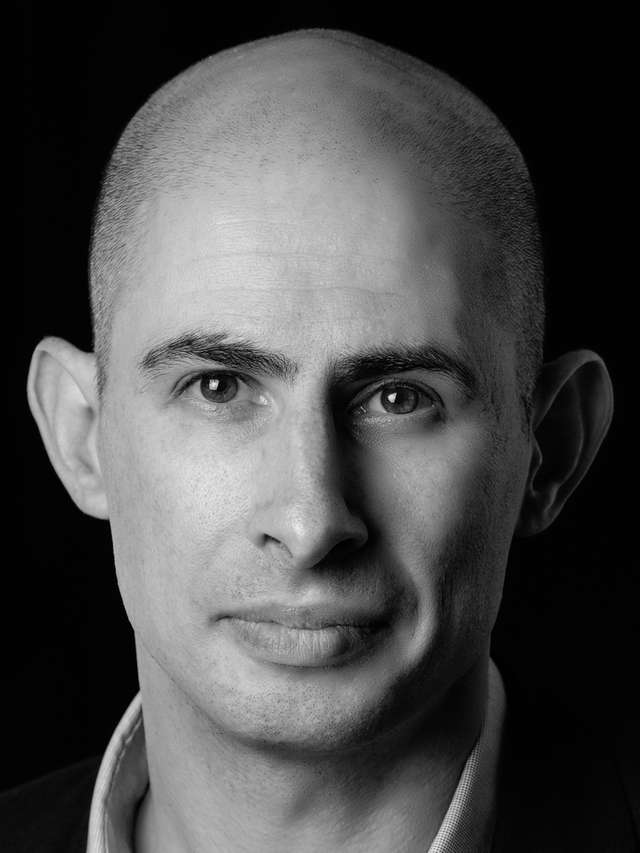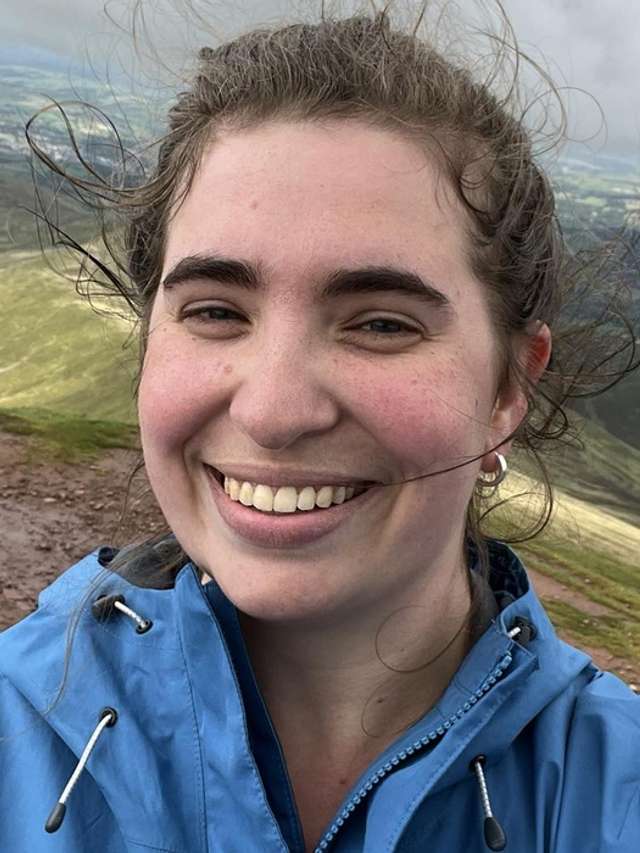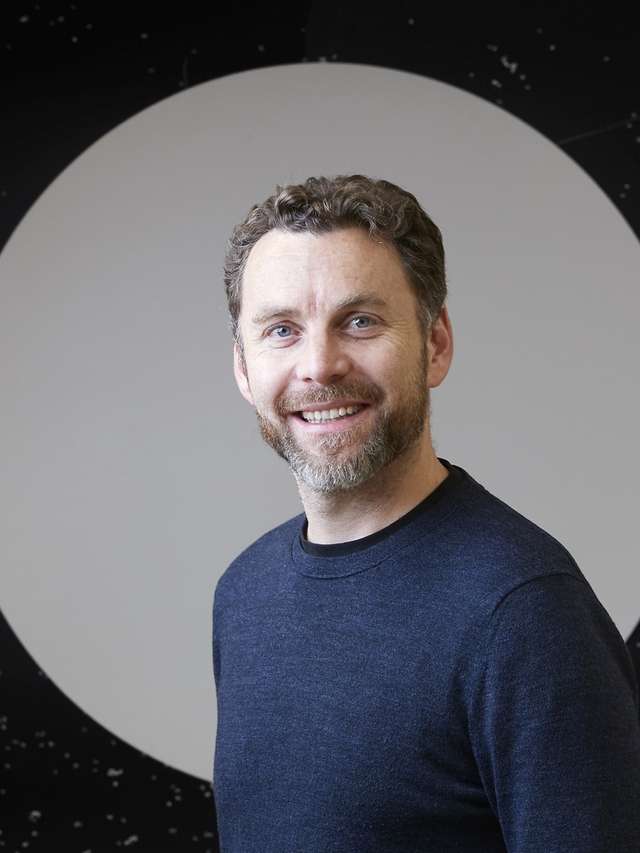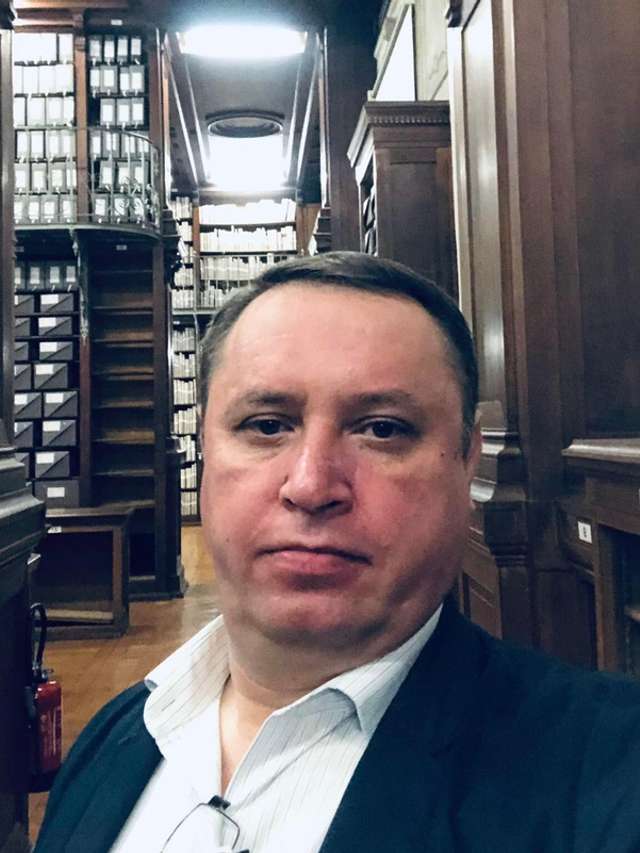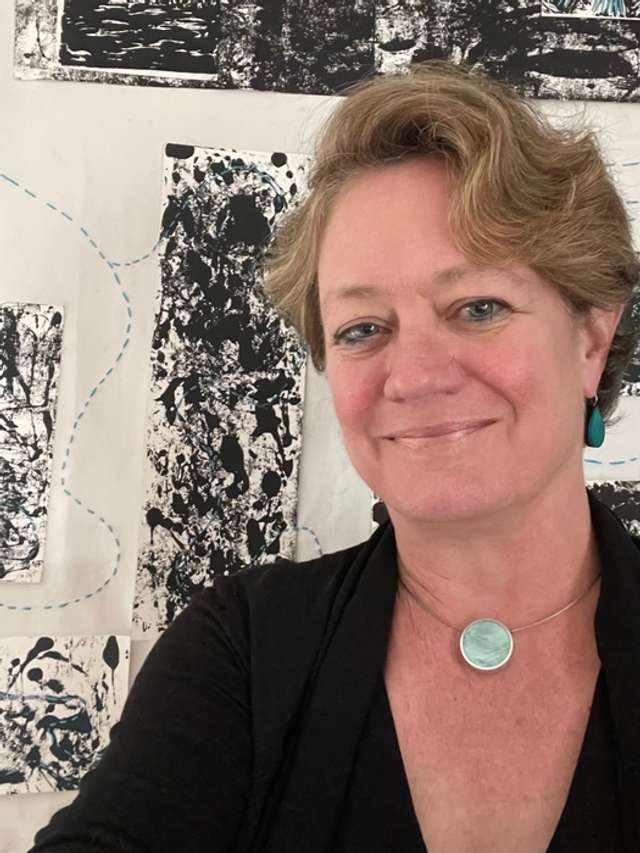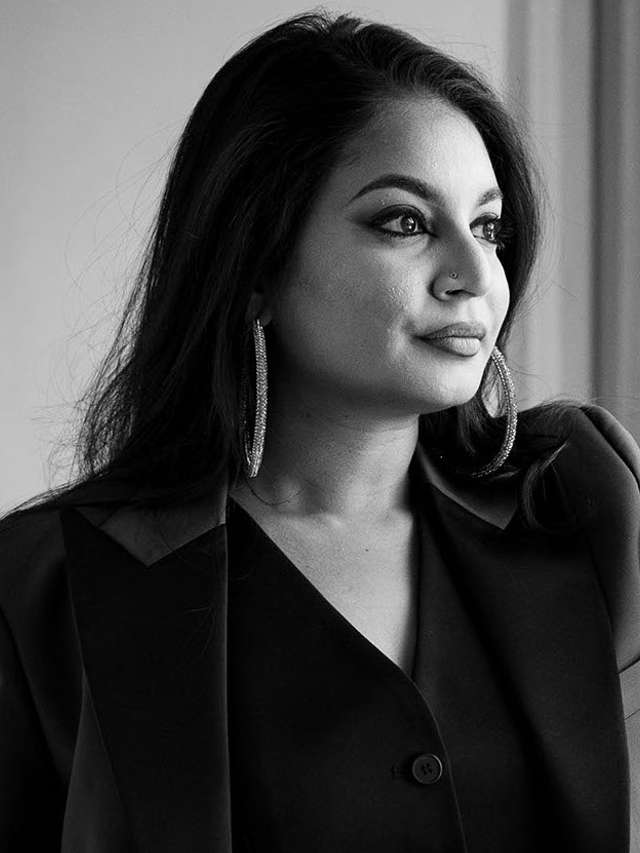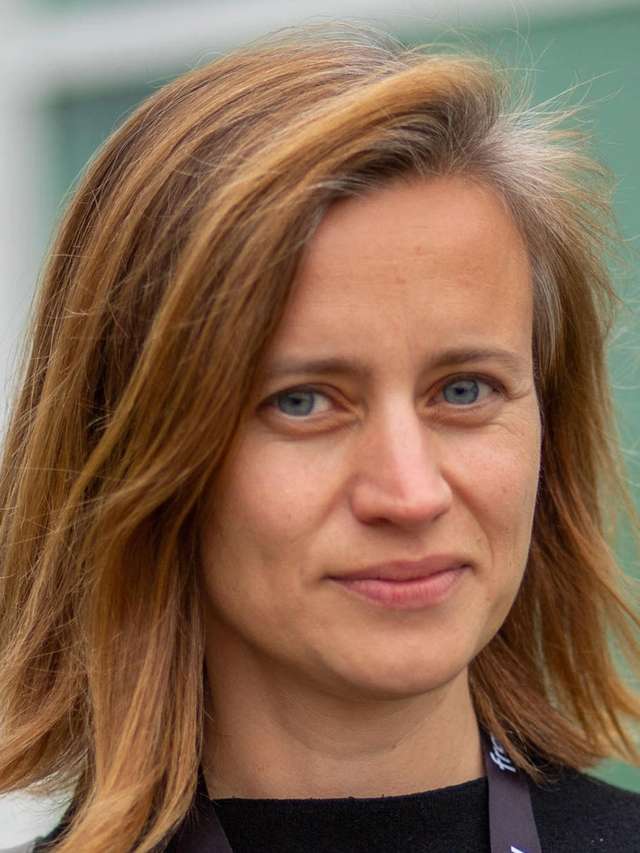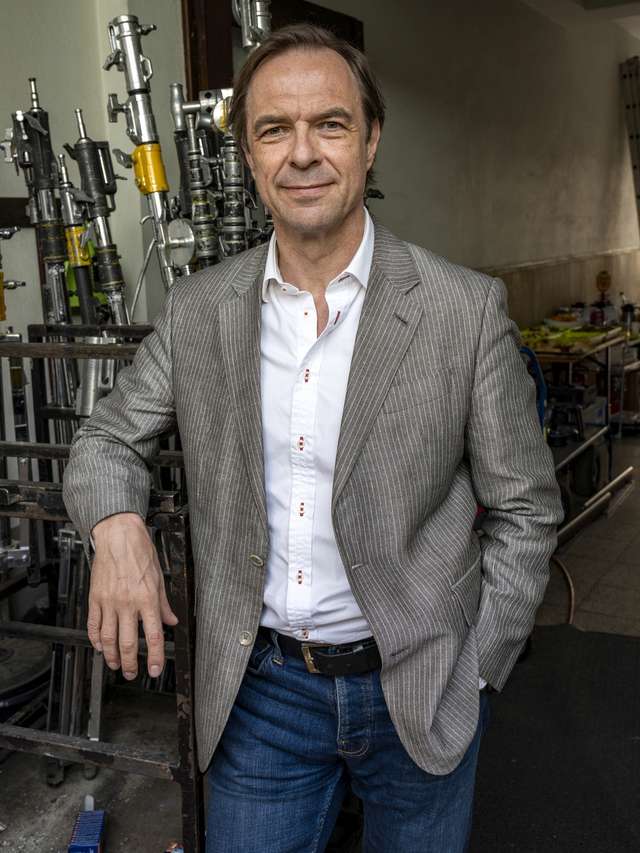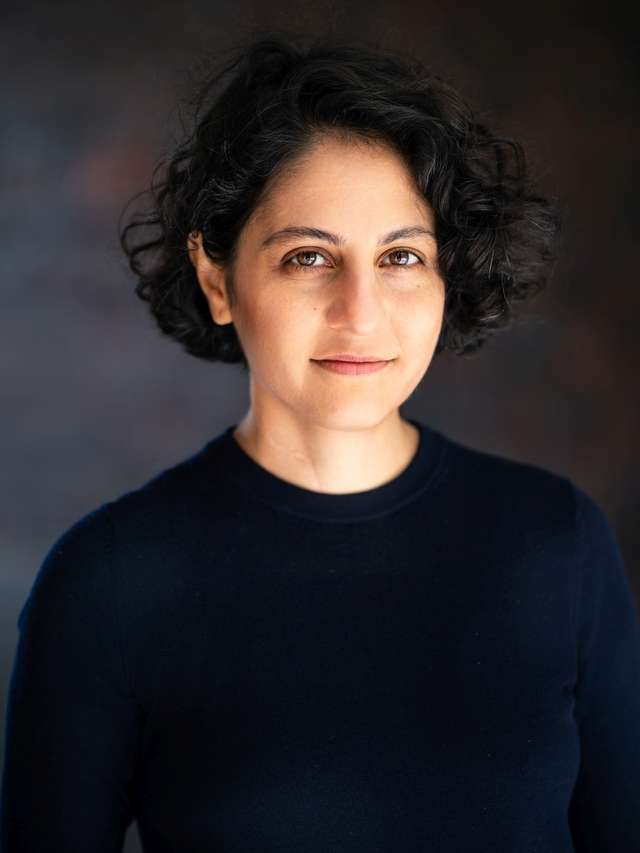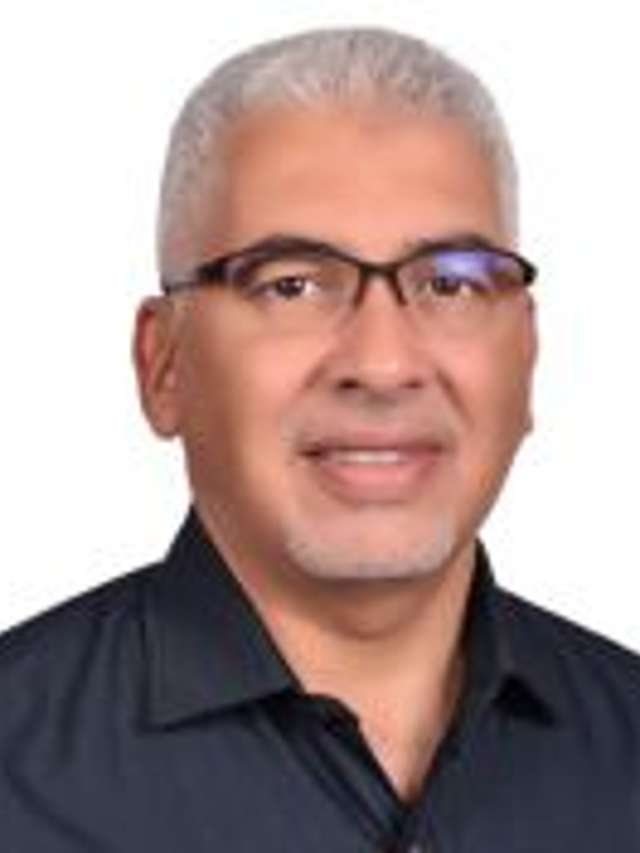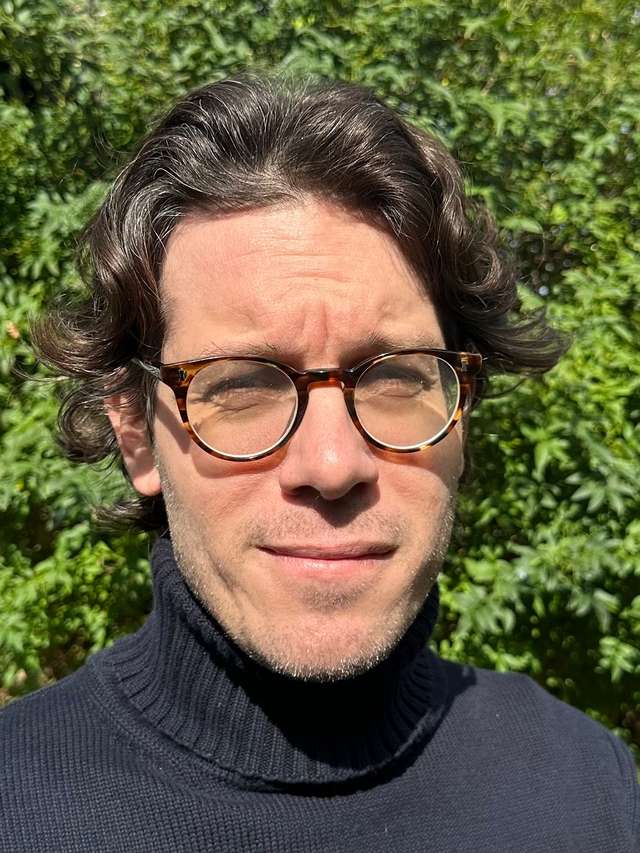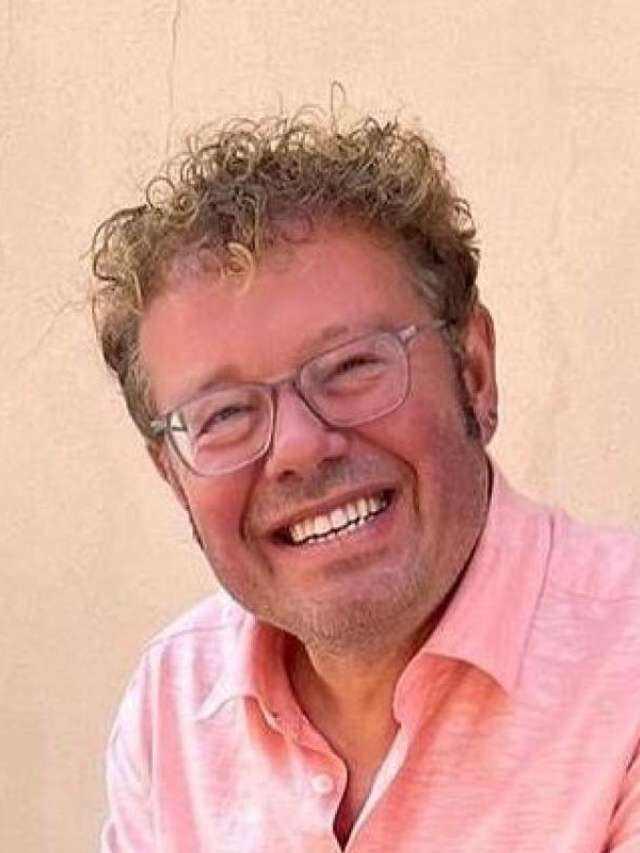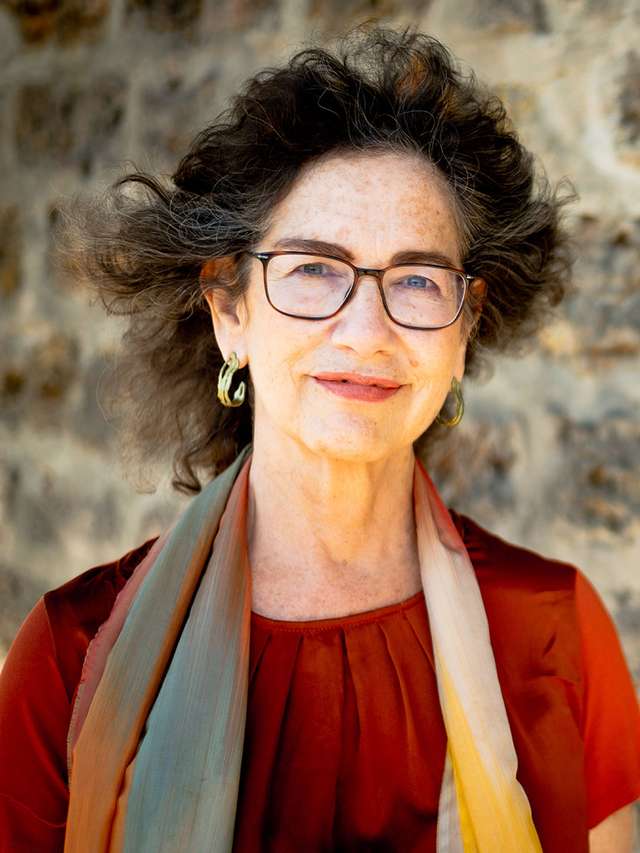PROGRESS
History Summit
Der Inkubator für innovative, historische Filme und Serien.
Der Hub für Kreative, Historiker:innen, Sender, Förder:innen, Archivar:innen, Produzierende.
Keynotes und Fach-Sessions mit internationalen Branchenexperten und VIPs.
Geschichte erzählen gestaltet die Zukunft.
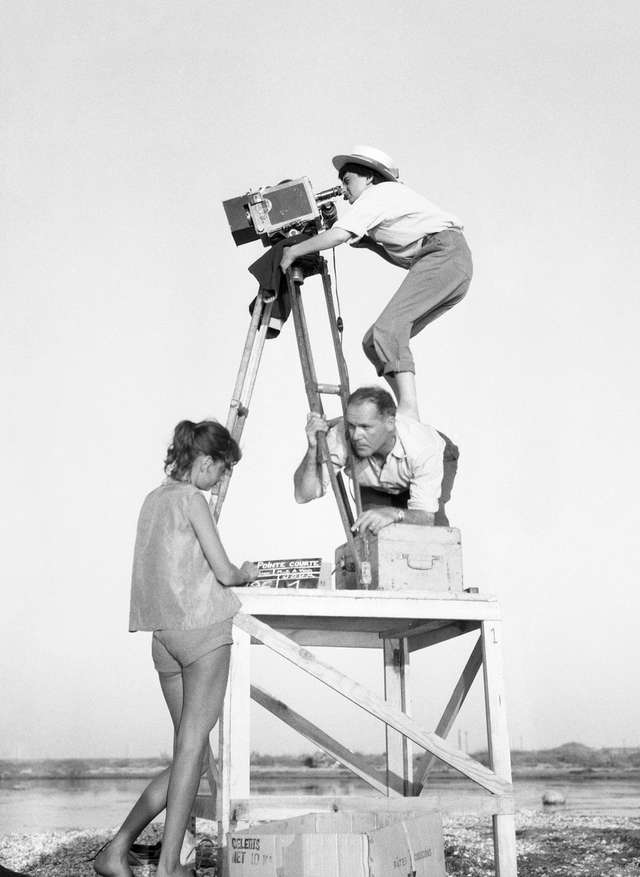
Der PROGRESS History Summit lädt weltweit alle, die an historischen Filmproduktionen beteiligt sind, zu einem offenen Dialog über ihr gemeinsames Wirken ein.
Der History Summit ist eine internationale Plattform, um tradiertes, filmisches Erzählen von Geschichte zu hinterfragen, neue Perspektiven zu stärken und innovative Projekte zu initiieren.
Key-Notes, Panel-Diskussionen, thematische Gruppengespräche, moderierte Lunch-Roundtables, One-to-One-Meetings und Abendempfänge sind Impulsgeber für Filmschaffende in einer sich bedrohlich spaltenden Welt.
Abonnieren Sie unseren Newsletter, um alle wichtigen Neuigkeiten rund um den History Summit zu erhalten.

"Die Diskussionen in den Panels waren unglaublich anspruchsvoll, die unterschiedlichen Themen geschickt miteinander verbunden. Vom aktuellen Stand der Geschichtsdokumentation über die Herausforderungen der Kriegsberichterstattung bis hin zum Einfluss der sozialen Medien auf die Wahrnehmung historischer Inhalte war alles enthalten"
Chris Hastings, Executive Producer / World Channel

Adel Ksiksi, Manager of Programming / Al Jazeera Documentary Channel

Aurélie Reman, COO / Sunny Side of the Doc

Jason Steinhauer, Founder & CEO/ History Communication Institute
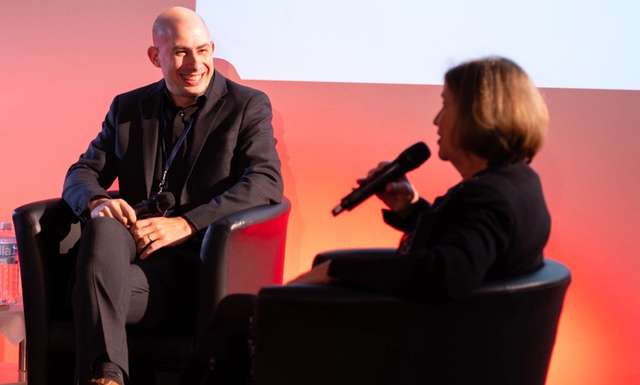
"Für die Dok-Agenda ein großes und wichtiges Thema"
Sönje Storm, Redakteurin / DW Documentaries
"Eine tolle Zeit mit vielen guten Leuten und Entscheidern."
Max Permantier, Förderreferent XR / FilmFernsehFonds Bayern
"Beeindruckend, inspirierend, provokativ und versöhnlich."
"... frischer Wind von außen, um die eigene Arbeit neu zu sehen und zu bewerten; Dialog inmitten einer polarisierten und gespaltenen Welt."
Elvira Lind, freiberufliche Beraterin / International Documentary Market
"Großartig fürs Networking"
Theo Baltz, CEO / MedienKontor Movie GmbH Berlin
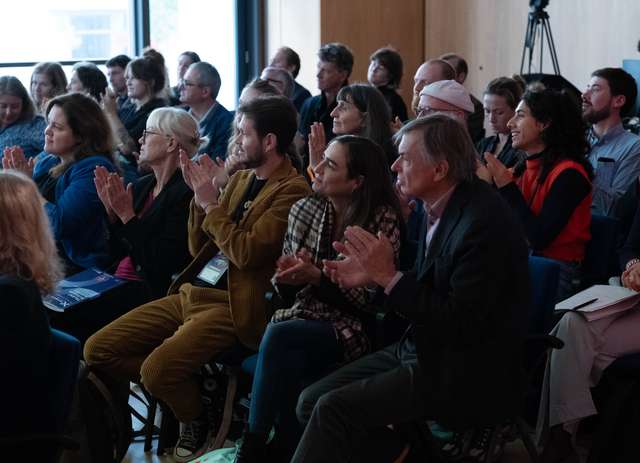
Der History Summit bot vier dynamische Sitzungen pro Tag mit herausragenden Redner*innen, die auf ihrem Gebiet führend sind, gefolgt von einem Q&A. Zwischen den Sessions gab es Kaffeepausen zum Networking; das Mittagessen wurde gemeinsam mit allen Powerhouse-Teilnehmer*innen eingenommen.
- Women Making History – Erased or Celebrated?Can lost history be recaptured by today’s storytellers? How do we ensure the history of women and non-binary people is incorporated into the historical record?
- Threat or Benefit? AI, the unconscious, and the reshaping of historyWith the rapid adoption of generative AI and the growing use of these technologies by the media industry, we face new challenges: biases in training and source data and inherent flaws in the technology of machine learning can lead to an imbalance, even to the point that some historical events disappear from the collective memory. How can technology be used to manipulate our individual as well as our collective memory?
- History Hits: What we called historyWith recommendations from a cohort of commissioning editors, historians, and funders we take a look back at the outstanding history productions of the last year across all platforms and formats. What are the most important, most influential, most innovative, and most daring history productions?
- Boots on the Ground – War Reporters’ Footprint on HistoryThe journalists that go into conflict zones are the eyes and ears for us all. The choices they make – their perspective – can become the history of record. Does objectivity exist in the midst of battle? What influence do journalists have on the outcome of the wars they cover?
- History Disrupted: Is social media hijacking the past or enhancing the future?This panel will provide the keys to understanding how the Web and social media shape what we know about ourselves and our past, and the tools for filmmakers to engage in correcting the digital record.
- Archives Under ThreatThe Library of Alexandria was the greatest repository of knowledge in the ancient world – until it was no more. Archives, despite their seeming permanence, are not indestructible. What do states, societies, communities, and individuals gain through preservation? What is lost when an archive disappears, becomes inaccessible, or falls into disuse?
Lassen Sie es uns wissen. Wir freuen uns darauf, von Ihnen zu hören!











